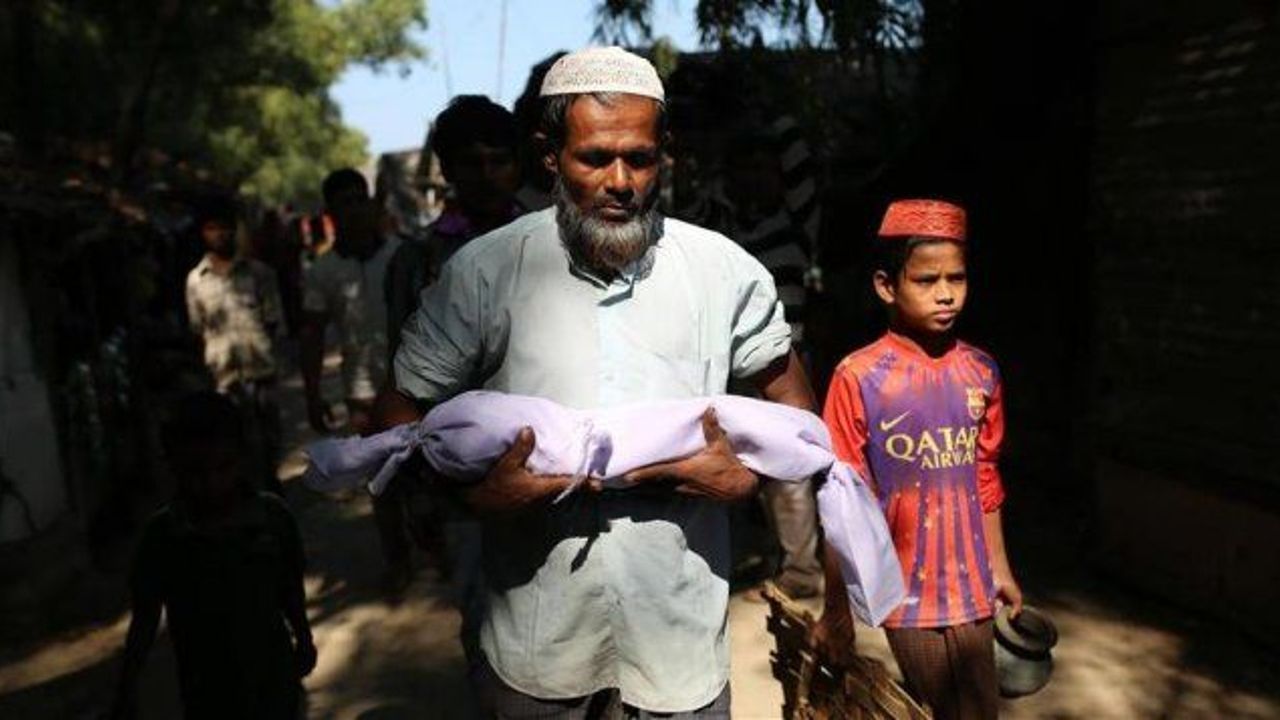Foreign missions demand Myanmar restore aid to Rakhine
Turkey's embassy in Myanmar is among 14 foreign diplomatic missions to club together Friday to urge the country to immediately improve humanitarian access to a conflict-torn area on the country’s western border with Bangladesh.

Since Oct. 9 -- when armed insurgents killed nine border police officers -- authorities have closed the predominantly Rohingya Muslim district of Maungdaw in the northern part of Rakhine State to aid agencies and independent journalists while the army conducts clearance operations.
Rohingya advocacy groups claim around 400 Rohingya have been killed in the subsequent military operations, while Myanmar says 91 people -- 17 soldiers and 74 alleged "attackers" (including four who reportedly died during interrogation) -- have been killed.
Although the government allowed United Nations agencies to resume aid delivery to Maungdaw on Nov. 6, access to some villages in the area is still denied due to what the army determines "security reasons".
On Friday, 14 Yangon-based embassies -- Turkey, Austria, Belgium, Canada, Denmark, Finland, France, Greece, Ireland, the Netherlands, Poland, Spain, Sweden and the United States -- said in a joint statement that they are deeply concerned by the humanitarian situation in northern Rakhine.
Although the statement welcomed the resumption of humanitarian assistance and initial deliveries to some villages, it underlined that many people were still suffering.
“We are concerned by delays and urge all Myanmar authorities to overcome the obstacles that have so far prevented a full resumption, noting that tens of thousands of people who need humanitarian aid, including children with acute malnutrition, have been without it now for nearly two months,” it said.
It added that by immediately allowing assistance to the area, the government would not only address serious humanitarian needs, but also begin to restore the confidence and hope essential to a restoration of peace and stability in the area.
“Full and unfettered access is essential for humanitarian agencies to conduct a comprehensive assessment of current humanitarian needs in support of the government’s humanitarian response,” the statement said.
“The re-establishment of access to markets and livelihoods is also very important.”
A law passed in Myanmar in 1982 denies Rohingya -- many of whom have lived in Myanmar for generations -- citizenship, making them stateless.
The law denies Rohingya rights to Myanmar nationality, removes their freedom of movement, access to education and services, and allows arbitrary confiscation of property.
Myanmar nationalists have since taken to referring to the Rohingya -- which the United Nations calls one of the most persecuted people in the world -- as Bengali, which suggests they are not Myanmar nationals but interlopers from neighboring Bangladesh.
Rohingya have fled Myanmar in droves for decades, with a new wave of migrations occurring since mid-2012 after communal violence broke out in Rakhine between ethnic Rakhine Buddhists and Rohingya.
Anadolu Agency







